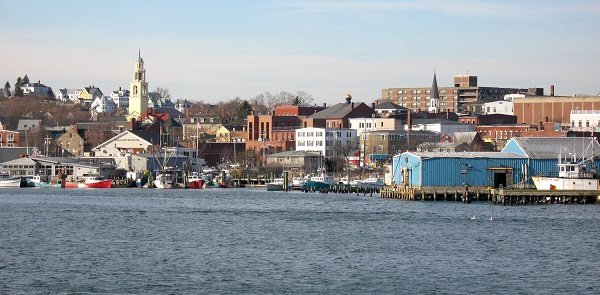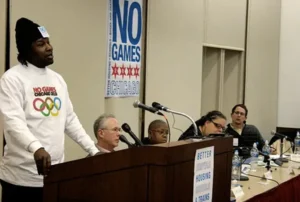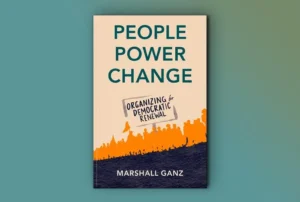
June 15, 2015; Boston.com
Massachusetts has a long and increasingly deadly problem with heroin. A few years ago, the opiate epidemic had reached such critical mass that then-governor Deval Patrick declared a public health emergency. Smaller and more suburban cities and towns are keeping up with more populous ones in terms of heroin overdoses and hospitalizations. Last year, a record 1,000 people died from heroin overdoses in Massachusetts.
As a response, last month, Gloucester started an initiative known as the “Angel Program” where instead of being charged for a crime, an opiate addict is escorted by an “angel” in the local police station to get help at a treatment center. Gloucester has a longstanding and relatively intense problem with substance abuse, as can be read in this New York Times article from 1988. Here is how it was described then:
In the 1960’s and 1970’s, heroin was prevalent among young people all over eastern Massachusetts, Mr. Burke said. But while heroin fell out of favor elsewhere, in Gloucester “it never lost its appeal,” he said.
The two-weeks-on, two-weeks-off schedule of many fishermen is conducive to alcohol and drug abuse, Mr. Morin said. A more important factor, he said, is Gloucester’s isolation as a working-class community surrounded by wealthy coast communities like Manchester, Ipswich, and Rockport.
“Gloucester, because of its position in the middle, tends to attract the losers from other communities,” Mr. Morin said. “Gloucester’s the place where you can live in a $50-a-week room.”
Last week, Mr. Burke assigned two state troopers to Gloucester’s four-member drug investigation unit. “We’re going to arrest as many people as we can who are using and abusing drugs,” he said. “Maybe we can drive some folks into treatment.”
But under the new program, even if a user were to walk into the police station asking for help with drugs on their person, he or she would not be charged.
Gloucester Police Chief Leonard Campanello and Gloucester businessman John Rosenthal have also jointly created a nonprofit organization to help the Angel Program. The Police Assisted Addiction and Recovery Initiative (PAARI) will help support the Gloucester program and work to extend it into other communities.
Now, Boston Mayor Marty Walsh is considering adopting the program for the state’s capital city.
Sign up for our free newsletters
Subscribe to NPQ's newsletters to have our top stories delivered directly to your inbox.
By signing up, you agree to our privacy policy and terms of use, and to receive messages from NPQ and our partners.
“I commend Gloucester for what they’re doing,” Walsh told Boston.com. “I think it’s a great idea, a great pilot program, I’m looking forward to seeing how it works and taking that model and possibly using it here in Boston.”
Walsh added that the odds were “fairly good” that such a program could be instituted in Boston.
The Gloucester program was a reaction to the town’s dozens of overdoses. Rather than coming forward with a flurry of arrests, police chief Campanello decided to attack the problem at its core.
“We’re committed to the idea of attacking the demand rather than attacking the supply,” said Campanello.
This marks a significant change and shift in attitudes about how drug crime and incarceration are addressed. This is the same country that for decades has given harsh mandatory sentences for anyone caught in possession of a certain amount of certain drugs. As efforts are being made now to change the mandatory sentencing policy, such as those of former Attorney General Eric Holder, Gloucester’s program also represents a markedly different approach to addressing the heroin epidemic.
Campanello, a former narcotics officer, wrote in a Facebook post that opiate addicts are suffering from the same disease as tobacco users. “The reasons for the difference in care between a tobacco addict and an opiate addict is stigma and money. Petty reasons to lose a life.”
There have been positive reactions to the program, acknowledging the theory behind its approach to drug crime. “I think it’s amazing,” said Joanne Peterson, founder of Learn to Cope, a support group for families of addicts. “He recognized addiction as an illness. People don’t enjoy being addicted to this stuff.”
But the program has not been without its detractors, either. The county district attorney indicated there might be legal issues implementing the program, which could also be concerns for Boston.
Moreover, mistrust of the police may also discourage addicts from asking for help. “This area struggles so greatly, and so I hope that people will not be scared of the police and really take the opportunity to get this help,” said Lindsey Stewart, treatment provider Gateway to Hope’s director of operations, to WBUR.
The programs in Gloucester and potentially Boston are not the first in the country to approach drug crime with efforts geared less towards punishment and more toward help. Several years ago, Seattle started fielding its repeat drug offenders to social workers rather than jail pens. Since the four-year pilot program was first implemented in 2011, Law Enforcement Assisted Diversion (LEAD) has helped the low-level, low-income offenders that were frequenting their jails. The participants in the program were 60 percent less likely to be arrested compared to the program’s control group.
Since the program launched at the beginning of this month, Gloucester has helped 17 people find help with their opiate addictions. While there will need to be long-term analysis of the impact of the program on the community and addiction levels in the town, there certainly is promise in the program. For Boston as well as nationally, this may indicate the beginnings of a shift.—Shafaq Hasan












